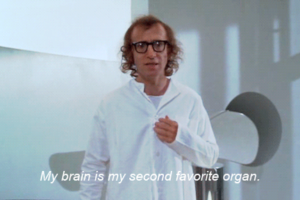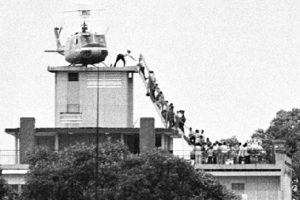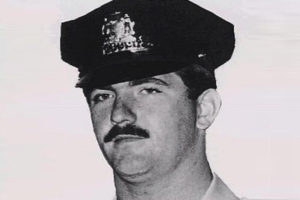With a great deal of public fanfare, Pennsylvania Attorney General Josh Shapiro’s office recently concluded a statewide grand jury investigation of pedophile Catholic priests. The grand jury prepared a report which named the priests who had been accused of molesting children. But, before the report could be published, some of those named filed suit to block the release of their names.
Earlier this month, the Pennsylvania Supreme Court ruled in their favor and ordered their names to be redacted from the published report. This prompted Shapiro to issue the following public statement:
HARRISBURG — “I have consistently fought for the release of the entire, unredacted Grand Jury report into widespread sexual abuse and cover up within the Pennsylvania Catholic Church,” Attorney General Shapiro said. “Today’s Order allows predator priests to remain in the shadows and permits the Church to continue concealing their identities.”
“I will continue to stand with all survivors, fighting to ensure every victim gets their day in court and that every predator priest and every bishop and church official who enabled child abuse is held accountable for their abhorrent conduct. The public will not relent in its demand that anyone involved in this widespread abuse and cover up be named. No one victim’s truth is any less important than another and no one’s criminal conduct any less loathsome.”
“While this Order bars me from releasing the names of these 11 petitioners, nothing in this Order prevents the Dioceses from sharing the shielded names with their parishioners and the public. I call on the Bishops to do so immediately, consistent with their recent calls for transparency.”
Shapiro’s statement, in turn, prompted me to write the following analysis for the Philadelphia Inquirer. It is online here, and will run in the Inky’s Sunday print edition tomorrow. So take a look and let me know what you think. Did the Supreme Court get it right? Or do you side with Shapiro?
Pa. Supreme Court was right not to release priests’ names in sex abuse investigation | Opinion
Posted: December 21, 2018 – 9:57 AM
George Parry, for the Inquirer

Recently, the Pennsylvania Supreme Court ruled that it would not permit the release of the identities of 11 Catholic priests named in a state grand jury report regarding sexual abuse of minors. Attorney General Josh Shapiro responded by reiterating his position that the entire, unredacted report should be made public, since every “predator priest” must be “held accountable for [his] abhorrent conduct.”
While I share Shapiro’s concerns, as someone who has conducted and participated in numerous federal, state, and county grand jury investigations, I believe that the Supreme Court was right to forbid publication of the priests’ names. Here’s why.>
Years ago, I represented two witnesses before a grand jury investigating child sexual abuse by clerics of the Philadelphia Archdiocese. My adult clients had been molested when they were altar boys, and their graphic testimony about their abuse by their parish priests was shocking and nauseating.
This representation resulted in other victims coming to me for legal assistance. Their stories followed a similar pattern. Almost all had been altar boys from working-class families and had been victimized by priests who had befriended their parents and, in many instances, had become regular guests in their homes.
In some cases, the priest molested his victim in the parents’ home within earshot of family members. Other times, with parental permission, he would take the child on an overnight trip to a remote location where the sexual assault would take place.
Too often, when the victim complained to his parents, he would be reprimanded for lying about a man of God. So it was that the child would be trapped in an inescapable nightmare.
Many of the parents told me that their son had been a happy, outgoing child. But then, suddenly and mysteriously, he became sullen and withdrawn. This change usually coincided with the child’s first sexual assault.
Now I firmly believe that almost all of my clients were telling the truth. They appeared to be sincere, and my questioning of witnesses and investigation of the surrounding facts corroborated their narratives.
But I had one client who proved to be an outright liar. He sounded convincing, but, when I investigated, his story fell apart. He turned out to be a con artist trying to shake down the Archdiocese for money damages, and I terminated our professional relationship.
And therein lies the problem. Anyone can make an accusation, but how do we know if it’s true?
Having conducted grand jury investigations for almost two decades, I can assure you that many things said in the grand jury later prove to be false. So, to protect lives, livelihoods, and reputations, testimony before a grand jury is kept secret.
Ordinarily, grand juries make their findings known through voting indictments or presentments by which individuals are criminally charged. These persons then have the opportunity to defend themselves and their reputations in a public trial. In addition, Pennsylvania grand juries may issue reports on the matters they have investigated. But since these reports do not constitute formal criminal charges to be tried in open court, the persons named in them have no means of clearing their names.
That’s the case for the 11 priests named in the state’s grand jury report. They may dispute the truth of the accusations against them. But, having been identified in a report instead of an indictment or presentment recommending charges, these priests have no way of fighting back if they have been wrongfully accused.
I am fed up and sickened by the Catholic hierarchy’s shameful attempts to cover up its plague of child sexual abuse. But I believe the Supreme Court got it right when it precluded the publication of the 11 names.
If the attorney general believes that he has solid evidence of crimes committed by these 11 priests, then he should bring criminal charges against them and go to court where both sides can fight it out. Otherwise, like in Las Vegas, what happens in the grand jury should stay in the grand jury, and the names should be kept secret.




4 Comments
Leave your reply.